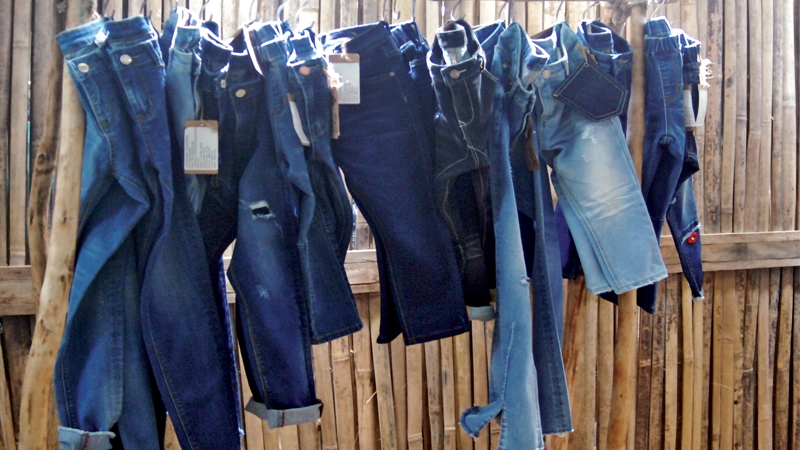Denim recycling, a process that turns old scrap denims into new garments, can fetch USD 4 billion annually, according to industry insiders. They were expressing their views at the ongoing two-day ‘Fashionology Summit’, which commenced yesterday at the International Convention City Bashundhara (ICCB) in the capital. The summit has been organised by the Bangladesh Apparel Exchange (BAE).
Besim Ozek, strategy and business development director of Bossa, said the main idea of such recycling is to turn scraps into materials that are in great demand in the fashion world. The total volume of annual leftovers from the country’s garments units is approximately 400,000 tonnes. If these leftovers are recycled for making new yarns and used in re-manufacturing garments, it would be a business of more than USD 4 billion, he added.
He also said that 50 litres of water is needed to wash one pair of jeans. So, recycling of these products would save that much water, he added.
MS Hasan, director (operations) of Amber Group, said recycled are made from post-industrial denim fabrics, which happen to be scraps. The energy spent in recycling old materials is lesser than that spent in converting raw materials into products, he added.
Previously, recycled materials could be extracted from pet bottles. But now old and used denims are creatively recycled into useful products, said Hasan.
Explaining the process, Hasan said: “We collect old used jeans first and turn them into cotton by using sophisticated machinery. Finally, the fabric is made,”
“As much as 3.5 million yards of denim fabric is our production capacity every month,” he added.
Mohiuddin Ahmed, director of Pioneer Denim,
said: “We produce 3.6 million yards of denim fabric per month.”
Using wastes from one cycle of production to the next through remanufacturing involves practical challenges. But recycling has immense business potential in the country's garments sector, he added.
‘Smart clothing’ is another session, which was going on at the ‘Fashionology Summit’.
It is the fourth industrial textile revolution, a sector that will reach a sales volume of more than USD 130 billion in 2025, said Mostafiz Uddin, founder of the Bangladesh Apparel Exchange (BAE). “The recent increase in wages and the cost of production have made it inevitable for apparel manufacturers of the country to concentrate on value added products. The smart clothing market is an area we need to focus on to survive and thrive,” he added.
“The shift from producing basic to smart clothing will not be so easy. It has to be done gradually with proper planning and preparation. The objective of the Bangladesh Fashionololgy Summit is to facilitate the shift,” he observed.
The theme of the 2nd edition of the Bangladesh Fashionology Summit is ‘Digitisation—the Next Destination’. The event is aligned with the government goals of ‘Digital Bangladesh Vision’.
Talking about innovation, Mostafiz Uddin said: “Our mission is to facilitate modern, innovative, technology-driven apparel manufacturing and supply chain conversations. We also aim to build a thriving community of leaders and innovators who will help guide our nation to transform into a ‘next-generation’ apparel manufacturing and marketing hub by using latest digital technology.”
A total of 41 speakers from 15 countries will speak at the sessions of the summit.UNB.

